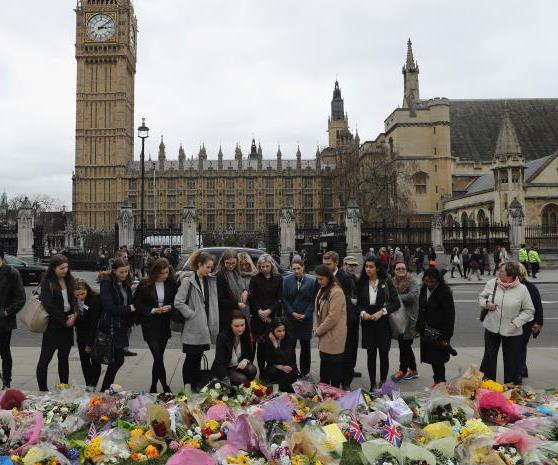The war on terror needs new strategies
 A close friend of mine lives and works in London. Her message to me on the day of the terrorist act near Westminster was: “I’m afraid to leave the office. Everybody is alarmed.
A close friend of mine lives and works in London. Her message to me on the day of the terrorist act near Westminster was: “I’m afraid to leave the office. Everybody is alarmed.
Terrifying. It’s London’s turn now.” The terrorists are moving the frontlines, step by step, closer to the homes of those who fight them, yet these countries still insist that evil will end with the fall of Raqqa. They are wrong.
The international community has been treating the symptoms of this deadly disease, not the disease itself. As a result, terrorism has mutated. Radicalism is common to all religions, but Islam’s image has been damaged the most by it. The core of Islamic radicalism is more political than religious, and initially grew due to dramatic regional turbulence, caused particularly by Western interventions without a proper understanding of the Middle East.
This created an environment conducive to the spread of dangerous ideas, turning religion into an instrument of manipulation. Muslims became pawns in a dangerous game, a brainwashed army without the capacity to think. The same is happening in Western societies due to the implementation of multiculturalism without proper integration policies.
Immigrants had to lose their old identity but did not get a new one. The same is happening with their children but on a new level. Cognitive dissonance and a feeling of injustice felt by the children of less fortunate immigrants can easily radicalize them. Thus Islam is proposed as an instrument of self-identification that can help them find their place.
Radical preachers and recruiters of terrorists, Daesh in particular, take advantage of this discontent in their propaganda and indoctrination. In particular, they hammer home the fact that Western countries have ruined the countries of immigrants, who are then humiliated and discriminated against by infidels when they have to move to the West. From the viewpoint of the target audience, that is exactly how it looks in many cases.
The new face of terrorism is far more dangerous than before, and can hardly be tracked by security services. It comprises lone wolves with minimal equipment, and small groups of mostly home-grown terrorists operating in European cities. It is time the West recognize this, tackle it properly, and come up with better policies for immigrant integration.
Despite Daesh taking responsibility for the attack in London, security services failed to find ties between the attacker and any terrorist organization. Daesh as a fading structure is using terrorist acts inspired, not directed, by it as a PR tool. The cheap attempt by some media to indirectly blame Saudi Arabia by saying the suspect visited the Kingdom at least twice is clumsy, because every Muslim wishes to visit Makkah at least once in their life.
So far, the international community has failed to formulate an appropriate strategy to counter extremist ideology. Separate local initiatives are woefully lacking, while the ideology of radical Islam is spreading, taking advantage of new technologies. Via social media, recruiters and propagandists come in direct contact with youths and brainwash them.
At the same time, moderate Muslims appear utterly incapable of playing a constructive role in preventing the spread of extremist ideology and the disfiguring of Islam’s image. They appear totally detached from the youth, unable to find common ground with them, and unable to use modern technologies as effectively as radicals.
Traditional security measures cannot guarantee much under the current circumstances without a full-scale strategy to counter the spread of extremism at all levels. It is high time the international community admit the mistakes made. Nothing ends in Raqqa. The longer the international community tries to make the war on terror a PR stunt, the more unavoidable radicalism and terrorism will become.
Article published in Arab News: http://www.arabnews.com/node/1076236/opinion











